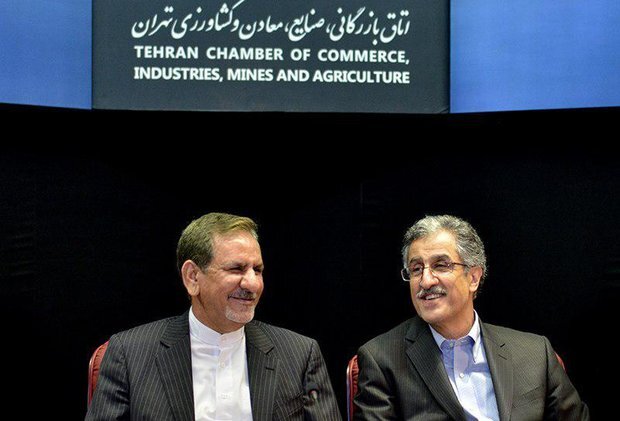VP stresses coordination with private sector in drafting executive regulations

TEHRAN - Iranian First Vice-President Es’haq Jahangiri has stressed the need for consulting and coordination with the country’s private sector before making any executive bylaws or regulations, the portal of Tehran Chamber of Commerce, Industries, Mines and Agriculture (TCCIMA) reported.
In response to a letter from TCCIMA head, Jahangiri noted that all government bodies are required to consult with the private sector in drafting bylaws and directives, calling it "legal duty and rational advice".
Jahangiri’s remarks come as, in a letter to Jahangiri, Massoud Khansari has criticized the new restrictions on imports and the regulations which are contradictory to the government policies for facilitating domestic production and export.
He has also pointed to the untechnical decisions by some government bodies which have created barriers in the way of the private sector’s exports.
Khansari has mentioned the ban on imports of more than 60 commodity items by the Food and Drug Administration, the ban on imports of 680 items related to health and medical equipment, the barriers to clearance of 230,000 tons of rice in the country’s customs and the restrictions on the exports of steel sheets, rebar, pipes and profiles as examples.
Back in July, Iranian Industry, Mining and Trade Minister Reza Rahmani said that the imports of 148 new commodities were banned by the ministry to rise the number of such items to 1487.
According to the official, during the past Iranian calendar year (ended on March 20, 2019) the industry ministry banned imports of some commodities into the country to support domestic production.
In June 2018, the minister ordered forbidding imports of 1,339 kinds of goods, classified in four groups, since they had similar domestic rivals.
Some banned products include home appliances, textile products, footwear and leather products, furniture, healthcare products, some machineries and etc.
According to Rahmani, implementation of the newly set ban on imports of goods which can be produced inside the country could prevent outflow of billions of dollars.
EF/MA
Leave a Comment